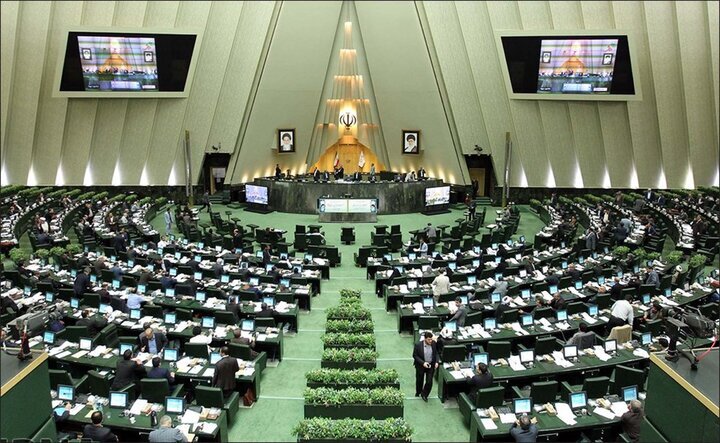Parliament approves bill to suspend cooperation with IAEA after U.S.-Israeli attacks

TEHRAN – The Iranian lawmakers in Parliament on Wednesday approved a bill to suspend all cooperation with the International Atomic Energy Agency (IAEA), following the agency’s politically motivated resolution and its silence over the recent U.S.-Israeli attacks on Iranian nuclear facilities.
According to Alireza Salimi, a member of the Parliament’s presiding board, the bill—which passed with overwhelming support—prohibits IAEA inspectors from entering Iranian nuclear sites unless national security guarantees are explicitly provided and confirmed by the Supreme National Security Council.
The bill comes in response to a series of escalatory moves by Western governments and the IAEA, most notably the passage of an anti-Iran resolution by the IAEA Board of Governors, which falsely accused Iran of non-compliance with safeguards. The resolution, introduced by the European troika and backed by the United States, was adopted with 19 votes in favor, despite strong objections from Iran, Russia, China, and other nations.
Speaking ahead of the vote, Parliament Speaker Mohammad Baqer Qalibaf delivered a strong rebuke of the agency’s recent actions. He said the IAEA’s failure to condemn the terrorist attack on Iran’s nuclear sites by the Zionist regime and the United States demonstrated the agency's complete loss of neutrality and independence.
“The IAEA, by remaining silent in the face of U.S. and Israeli military aggression, has sold its credibility and independence,” Qalibaf stated. “Therefore, cooperation will be suspended, and Iran’s peaceful nuclear program will advance with greater strength.”
Qalibaf reaffirmed that Iran will not allow Western deception or military threats to undermine its national interests. “With our finger on the trigger and full preparedness, we will firmly respond to any further aggression,” he said.
He added that the Zionist regime has not only failed to prevent Iran’s enrichment or limit its missile program, but also sustained heavy blows during Iran’s recent defensive operations. “The Zionist myth of invincibility and the Iron Dome has collapsed,” he said. “Iran’s offensive capabilities have shattered the enemy’s sense of security.”
In parallel with the suspension bill, senior lawmakers proposed banning IAEA Director General Rafael Grossi from entering the country. MP Esmail Kowsari said he had formally urged the Supreme National Security Council to enforce such a measure, citing Grossi’s instrumental role in enabling hostile actions against Iran.
Based on his biased and inaccurate report, the IAEA passed the recent resolution just days before the Zionist-American aggression of June 13, which led to the martyrdom of Iranian nuclear scientists and high-ranking military officers. Despite these clear violations of international law, Grossi has yet to condemn the attacks.
Iranian Deputy Foreign Minister Kazem Gharibabadi described Grossi as “a tool in the hands of the Zionist regime and the United States,” while Foreign Ministry Spokesman Esmaeil Baghaei accused the agency of betraying the Non-Proliferation Treaty and participating in an unjust war.
Atomic Energy Organization of Iran (AEOI) chief Mohammad Eslami also addressed a letter to Grossi, denouncing his silence over the illegal assaults on Natanz, Fordow, and Isfahan nuclear sites, carried out using U.S. B-2 bombers and cruise missiles.
In response to the Western provocation, Iran has announced plans to build a new nuclear facility and enhance uranium enrichment through advanced centrifuges at the Fordow plant. These measures underline Iran’s unwavering commitment to its peaceful nuclear program despite threats, sabotage, and coercion.
Parliament advances comprehensive civilian drone regulation to protect security
Iran’s Parliament also passed another critical piece of legislation on Wednesday: the general outline of the Bill on the Organization of Remotely Piloted Aircraft (Civilian Drones).
With strong backing from lawmakers, the bill marks a significant step in addressing the rapid growth of Iran’s drone industry while ensuring comprehensive oversight to protect national security and public safety.
The bill, initially drafted in 2023, was shaped under the guidance of the late Lieutenant General Mohammad Bagheri, former Chief of the Armed Forces General Staff, whose strategic vision laid the foundation for a national drone policy.
Brigadier General Talaei-Nik, the Ministry of Defense’s spokesperson and government representative during the session, described the legislation as both forward-looking and necessary, striking a balance between supporting technological development and preventing potential threats from unregulated drone activity.
According to the bill, any import or export of non-military drones and related equipment without official permits will be treated as smuggling, subject to legal penalties under national customs and security laws.
The law also prohibits the sale, transportation, storage, or operation of any civilian drone lacking a valid ownership certificate. Individuals and entities in possession of unregistered drones must submit proof of ownership and obtain certification within three months of the law’s enactment. Drones failing to meet this requirement after the deadline will be classified as illegal and subject to confiscation, fines, or other penalties.
Leave a Comment